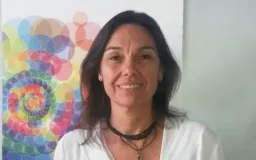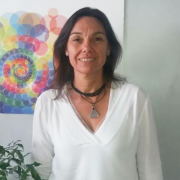Image

The CEO of FECEC, Clara Rosàs, explains the importance of belonging to the ECL, a supranational entity that unites European anti-cancer organizations under the same objective.
The Catalan Federation of Organizations against Cancer (FECEC) brings together 15 foundations and / or associations that work in Catalonia to improve the quality of life of the patient with cancer and their families and mobilizes more than 4.500 volunteers and volunteers throughout the territory.
From the federation, we offer services to federated entities, we represent the group in organs of the Public Administration, as the Advisory Council of the Oncology Master Plan or the Association of Volunteerism Council, and develop programs in three areas: the Awareness raising and prevention of the disease, the promotion of volunteering in cancer and oncology (for people who have overcome or chronicled the illness)
But apart from the task of representation in our territory, we believe in the need to make a network beyond our borders. For this reason, we have always had the will to be in contact with the entities that in Europe work for the same objective.
This is how, since 2014 FECEC belongs to the Association of European Cancer Leagues (ECL). This European organization has adhered 26 entities from 24 European countries and provides a platform to collaborate in the areas of prevention, control of tobacco, access to new medications and patient support. It also creates opportunities when it comes to promoting initiatives at European level.
ECL provides a common framework for the fight against cancer and, among other actions, is responsible for the dissemination in Europe of the European Code Against Cancer. Within the Association there are three working groups (European Code, access to medications and Patient Support) and, each one of them, has an ECL technician and a leader or group leader of any of the 26 entities . Each group physically meets 2 times a year, in one of the 24 member countries.
These meetings serve to present the advances in the projects in which you are working and to reach consensus on the lines of work to follow during the next 6 months. Online conferences are also held and the documents that are being prepared are shared.
In the case of the prevention work group, a joint work was carried out for the dissemination of the European code against cancer, and a list of good practices was developed to be known to the entities. In the case of the group 'Access to medications', it is a more technical group. For example, last October, it presented, in front of the European Parliament, the white paper, with different proposals on how politicians could address the problem of the high prices of cancer treatments, among other issues.
The 'Patient Support' group is divided into subgroups according to the different themes or projects that are carried out. In 2018 the group presented the Guide for caregivers and the publication of proposals for returning to work (aimed at entrepreneurs). This last guide was co-led by FECEC. Work is also being carried out on a volunteer guide and a publication to address the issues of couples and sexuality during and after treatment.
The idea of belonging to a supra-state organism is to create these spaces in common among all European associations related to the study and prevention of cancer. Ultimately, the ECL provides a global vision of common problems that affect all organizations in the field of cancer in Europe, see different solutions, detect good practices, contribute the vision of each entity and create opportunities to find new solutions.
Therefore, the FECEC membership of this European body serves to provide better information and services to our federated entities that directly benefit patients and family members affected by cancer.



Add new comment